Why is Europe turning its back on Ukraine?
14- Andrei Sannikov, The Guardian
- 30.10.2014, 11:50
- 24,520
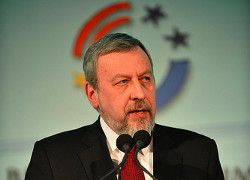
Ukraine’s chances of survival are weak today and gloomy in the future.
The reason for this is the position of the major player in the war in Ukraine. This player is not Russia – the country that unleashed the war in Ukraine. This player is the west or, to be more precise, Europe.
The largest and most successful association of democratic countries in the world, the European Union, is showing more and more reluctance to help Ukraine to survive.
The number of political groups that are inclined to support Russia’s president Vladimir Putin is growing, both in the ruling parties of the European countries and in the opposition; from Hungary’s Victor Orban and his ruling Fidesz party to the far-right opposition parties that are performing spectacularly well in national elections, such as Marie Le Pen and her Front National of France. Sympathy and support also comes from Hungary’s Jobbik radical nationalists, the Flemish nationalist Vlaams Belang in Belgium, Greece’s far-right Golden Dawn, Austria’s Freedom Party, and Italy’s Lega Nord, just to name a few.
Moreover, the number of European politicians and intellectuals who justify Russian aggression is growing and expanding.
They start with a “safe” subject – Crimea, which is almost forgotten not only by Europe but by Ukraine itself – and keep on suggesting that the federalisation (read disintegration) of Ukraine will be a good solution.
They write open letters individually and in groups to support Putin’s aggression, following the examples from the Dutch professor Cees Hamelink (who apologised to Putin for the media’s lies about Ukraine) or 300 plus German intellectuals. Among them are heavyweight figures, not only notorious ones like Gerhard Schröder, the former German chancellor who is on Gazprom’s payroll, but also Helmut Schmidt, another former chancellor, and Günter Verheugen, a former European Union commissioner. More European analysts and journalists keep suggesting that Ukraine is a perpetual mess and it will serve no good to pump money into it until it delivers on good governance.
The largest and most successful association of democratic countries in the world is showing reluctance to help Ukraine to survive.
Besides, there is a misplaced ideology that sees Eurosceptics go for anything that is against the European Union and leaves them inclined to support Putin’s policy on Ukraine and oppose sanctions against Russia.
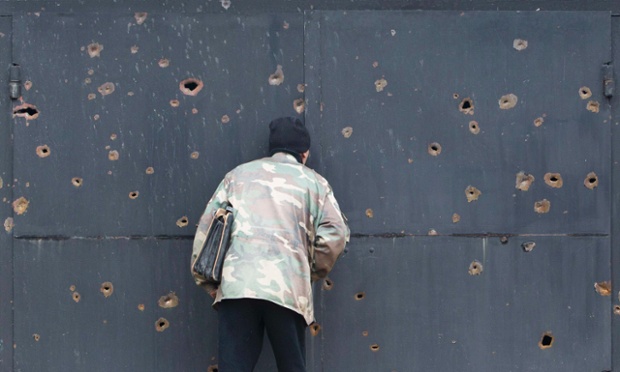
Europe wants trade with Russia and is quite happy to accept Russian money in its capitals without questioning its origin, and so many leaders echo the voices of pro-Kremlin politicians, think tanks, newspapers, and intellectuals as a result. Money talks.
Russian domination
It looks as if Europe is about to declare its favourite postulate: “Russia is by far more important for us than any other former Soviet country.” That was always the case before the war in Ukraine broke out. Europe does not want to be disturbed. It doesn’t want to see the dangers to itself beyond Russia’s war in Ukraine. It wants to go back to “business as usual” with Russia as soon as possible. The war is a nuisance. Dead bodies of Ukrainian patriots are a nuisance.
Europe cannot understand that this is a war on Europe, not on Ukraine, and that Putin, if not convincingly defeated, will go ahead with his expansionism and revisionism. The ground is laid for that: Transnistria, South Ossetia and Abkhazia, Russian minorities in Baltic states, the Kaliningrad exclave, and now Donbass and Lugansk are more than enough of a major Kremlin offensive in Europe.
Ukrainians stood up against such a scenario between November 2013 and February 2014. They fought against Russian domination. They fought not for the EU Association Agreement but for their dignity, for the same values that Europe is built upon. They won only to become an object of aggression, and have received very little help from outside to cope with this aggression and save the country.
Europe was very slow to recognise this threat and even slower to respond. And today still there is a lack of understanding that the threat is much larger than Russia’s war in Ukraine. It has to be addressed as a threat to Europe.
It looks like Europe is about to declare its favourite postulate: ‘Russia is by far more important for us than any other former Soviet country’
Yes, Ukraine is a mess: politically, economically, financially. Most probably it will remain a mess for many years, but it doesn’t undermine the need to help. Moreover this need is becoming more urgent. There has to be a long term strategy in Europe to help itself, which means to help Ukraine.
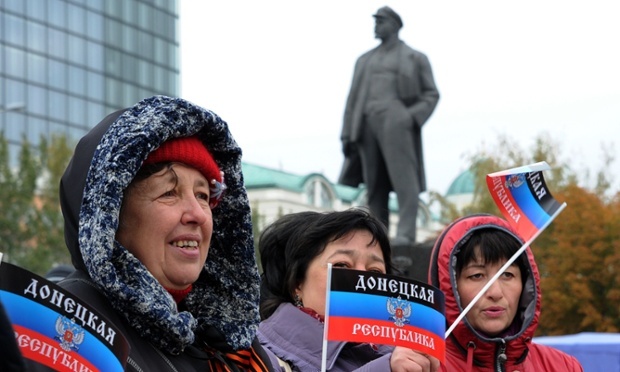
Sanctions against Russia are the least Europe can do in this regard in the short term. European businesses and dissenting voices on sanctions should recognise or be persuaded to recognise that their political and business future depends on solidarity with the Ukrainian people in this difficult time.
Putin is more efficient in his decisions to continue aggression than the EU is in its decision to protect values. Putin is ready to sacrifice at the expense of the Russian people, while European businesses are not ready to risk profits for the sake of future prosperity in Europe.
Lethal mistakes
Even if Europe eventually overcomes its slowness in decision-making and its shyness in rebuffing the aggressor, its long-term strategy on its own future is not even within the range of vision. Moreover, it is making serious if not lethal mistakes that will lead to more insecurity to say the least.
Putin is more efficient in his decisions to continue aggression than the EU is in its decision to protect values.
While condemning Russia’s aggressive policies and discussing sanctions to oppose such policies, Europe is returning to its futile policies which appease dictators in Russia’s neighbourhood.
All of a sudden Belarus’s Alexander Lukashenko, only yesterday a European pariah, is regarded not even as a lesser evil but as a legitimate mediator and independent player on the side of Ukraine. He is becoming a star of European media who line up to interview him, including Euronews and France 24.
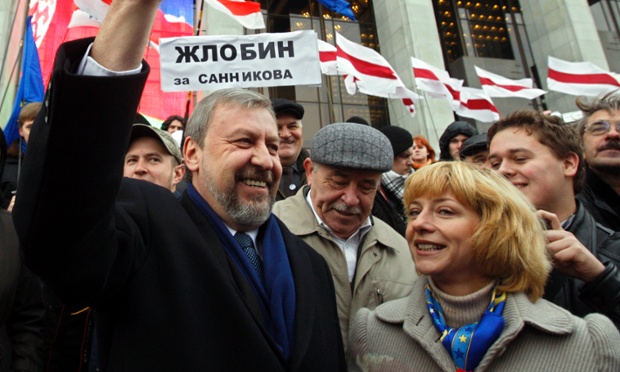
Europe abruptly agreed that Lukashenko is eligible to provide good offices for talks on Ukraine, which turned out to be treacherous offices helping Putin to leap forward on the issue of recognition of terrorists in eastern Ukraine. Under the disguise of the “peace” talks in Minsk, the EU’s high representative met Lukashenko, shamefully ignoring the EU policy banning high-level contacts with Belarus until all political prisoners are released.
Who cares about political prisoners and continued repressions in Belarus when half of Europe is courting Lukashenko to buy its salmon, milk, apples, seafood, cheese and sausages to sneak past Russia’s embargo on western food? “Parmigiano-Belarussiano” is a new brand in Moscow today.
The EU ban on high-level contacts disappeared, leaving the repressions intact and political prisoners in jail, one of whom was a presidential candidate in the last election, Nikolai Statkevich.
It doesn’t matter that Lukashenko voted against Ukrainian territorial integrity in the UN and that Russia does what it wants militarily on the territory of Belarus. It doesn’t matter that, in an interview with Euronews, he suggested sending troops to Ukraine under the disguise of peacekeepers, thus violating the Belarusian Constitution — a transparent attempt to help Putin to legitimise military presence in Ukraine since there is no such thing as Belarus peacekeepers.
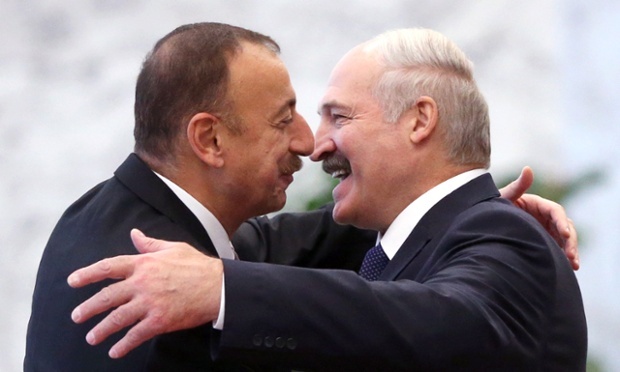
Nobody cares since he helps Europe’s food industry and that is more than enough to forget about his record of atrocities and start opening doors for him in Europe. Lukashenko is more than happy and reacts predictably with more repression against civil society and independent media.
‘Dictators international’
Lukashenko is not alone. There is Ilham Aliyev of Azerbaijan, who has intensified repressions, harassment, beatings and arrests of opposition politicians, civil society activists, human rights defenders and journalists. There are about 100 political prisoners in Azerbaijan, including prominent human rights defenders Leyla and Arif Yunus. And this is happening when Azerbaijan chairs the committee of ministers of the Council of Europe.
Aliyev is known to spend a lot of money to buy lobbying for his regime in the west. There is even a term for this – “caviar diplomacy”. His investment pays back. There is a feeble condemnation of his brutality against dissenters and at the same time he was invited to the Nato summit in September and offered to take part in reconstructing Afghanistan together with western partners.
Ukraine and Europe are in danger as long as this ‘dictators international’ exists.
Europe makes an epic blunder by allowing itself to regard dictators in the post-Soviet area as lesser evils who can be used to thwart Putin’s aggression. Putin’s goal, maybe the main goal, is to preserve and defend “dictators international” by all means in order to attack western values and the west itself. He is ready to wait and pause and thoroughly prepare the attack with the help of the Lukashenkos.
It is quite hypocritical for Poland, Latvia and Lithuania, neighbours of Belarus, to raise alarm and to rightfully demand presence of Nato troops on their territory to defend them against potential Russia’s aggression, and at the same time reverse the policy of sanctions and start appeasement of the closest military ally of Putin and the founding father of “dictators international” in the post-Soviet area.
It is alarming to hear the new European leadership declaring the necessity to step up critical engagement with Belarus. It is well known that by this the EU means less criticism and more engagement with the dictator.
Ukraine and Europe are in danger as long as this “dictators international” exists. Any engagement with one dictator with the hope to deal with other ones will lead to more instability, more repression and more war in Europe.
Andrei Sannikov, The Guardian








